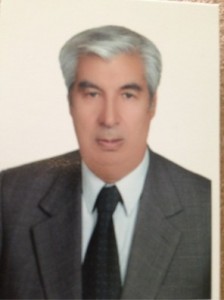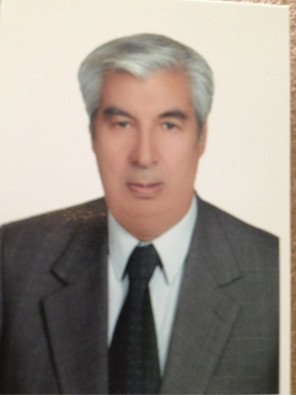 UPDATE: The rules regarding the requirements for a �legal permanent resident� have been clarified below, thanks to the input of knowledgable local immigration attorneys .
UPDATE: The rules regarding the requirements for a �legal permanent resident� have been clarified below, thanks to the input of knowledgable local immigration attorneys .On Election Night last month, Daryoush Sarreshteh, 73, and his wife Sakineh, arrived at Dulles International Airport after 11 hours of flying from Tabriz, Iran, where he was once the mayor. They were looking forward to seeing their daughter and granddaughter in Falls Church. Sakineh Sarreshteh is a naturalized U.S. citizen and Daryoush Sarreshteh had a green card, though he had not been in this country in three years.
The three-year absence apparently caught the eye of someone at Customs and Border Protection at Dulles, because �legal permanent residents� are supposed to be, well, residents. They took the Sarreshtehs into the back and began to question them. According to Sakineh Sarreshteh, this involved a great deal of shouting and intimidating in English, which neither understood. The detention and interrogation lasted for more than five hours, with their confused family waiting elsewhere in the terminal, and it seemed to stagger Daryoush Sarreshteh. He emerged just before midnight, pale and fearful, his wife said.
Two days later, he suffered what appears to be a sudden heart attack and died in his daughter�s home in Falls Church. His family believes the interrogation by the Customs officers killed him.
�They took him from us,� Sakineh Sarreshteh said the other day, speaking through her daughter, Sepideh Sarreshteh. She said she believes the forceful interview was fatal, �because of the five hours of stress. He�s not going to come back. Please don�t do this to other parents and innocent people.�
Customs officials don�t believe they acted inappropriately.
�Customs and Border Protection empathizes with the grief this family is feeling toward the untimely loss of Mr. Sarreshteh,��spokesman Stephen Sapp said. �We wish to assure them that Mr. Sarreshteh�s admissibility review was of a routine nature, and that CBP strives to treat all travelers with respect and in a professional manner.�
The Sarreshteh family is considering a lawsuit against Customs, depending on the results of the autopsy of Sarreshteh, attorney Demetrios Pikrallidas said. A family friend, he was at Dulles the night the couple arrived from Iraq, and was the first to see Daryoush Sarreshteh emerge from his interview around 11:45 p.m.
�He was shaking,� Pikirallidas said. �He was panicked. He broke down in tears.�
�They treated them like dogs,� said Sapideh Sarreshteh, a nurse who lives in Falls Church with her 13-year-old daughter. �And they killed my Dad.�
Years ago, Daryoush Sarreshteh was the mayor of Tabriz, a city with an estimated population of 1.4 million, during the Shah�s reign which ended in 1979. He also oversaw Maku, a smaller city in the West Azerbaijan region. His daughter said that Mahmoud Ahmadinejad, the current president of Iran, worked for her father at one time. Sarreshteh had been retired for a number of years.
Sarreshteh had four children, of which Sepideh, 39, is the oldest. She moved to the U.S. in 1998, works as a physician�s assistant and has a �green card� as a legal permanent resident.
Sepideh Sarreshteh said she helped both of her parents obtain green cards as well, and her mother earned U.S. citizenship in 2011. But her father had some health problems, underwent several surgeries, survived the recent massive earthquakes in Tabriz, and did not visit this country for three years. Those with �legal permanent resident� status are supposed to live here and�at least visit once a year�not be absent from the country for more than six months at one time. Daryoush Sarreshteh did�neither�not qualify on either count.
So after flying from Tabriz to Turkey, and from Turkey to Dulles, he and his wife were pulled from the line at Customs and taken to a back room, Sakineh Sarreshteh said. They arrived at 6:30 p.m., and had family waiting. For three hours, the family heard nothing.
�I showed my American passport,� she said, �I said, �Let me go out.� They said no, you�re going to stay here.� For two-and-a-half hours, �they kept yelling and asking questions. I didn�t understand.�
Then they took her husband into a separate room. �They kept yelling at him,� she said. At the three-hour mark, after Sakineh Sarreshteh gave officers her daughter�s business card, they called Sepideh and reported her parents would be out soon.
But the agents were apparently waiting to get a Farsi translator on the phone. An on-the-record interview was then conducted by Officer Bryan Hinger, which was transcribed and given to Daryoush Sarreshteh before he left.
The interview does not seem particularly confrontational. Sarreshteh explains that he got his green card in 2006, and gives his permanent address in Tabriz. He said he planned to stay in the U.S. for two months.
�Our records indicate,� Hinger told Sarreshteh, �you departed [the U.S.] on January 22, 2009 and today is the first time you have been back since. Is this correct?�
�Yes, I confirm that,� Sarreshteh said.
�Why have you been absent from the United States for this period of time?� Hinger asked.
Sarreshteh replied, �I was not able to come. I do not have any other explanation to give you.�
A few minutes later, Hinger tells him, �it appears as if you have abandoned your status as a Lawful Permanent Resident in the U.S. Do you understand?�
Sarreshteh said, �Based on the explanations that were given to me, I understand.�
He was issued a notice to appear before an immigration judge to explain why his status should not be revoked. Sarreshteh said he would appear. �I will respect the law and follow it,� Sarreshteh said.
His wife was released about 11:30 p.m., and Sarreshteh walked out around 11:45 p.m. He was taken to his daughter�s home in Falls Church.
On Wednesday, Nov. 7 he appeared to be well, his daughter said. She went to work the next day, and the elder Sarreshtehs took a walk together, though �he couldn�t walk very far.�
When Sepideh Sarreshteh came home around 5 p.m. on Nov. 8, she said, �He didn�t look himself.� He asked her, strangely for him, �Can you take my blood pressure?� She didn�t ask why, and didn�t have the equipment. He didn�t say anything, and went downstairs to watch TV.
About a half-hour later, his daughter and wife were calling Daryoush Sarreshteh to come upstairs for dinner. But he had collapsed in a bathroom, and was dead.
Pikrallidas, a Fairfax lawyer, said, �Our allegation is that the stress did this to him.� He said it was possible Sarreshteh had developed a blood clot in his leg which traveled to his heart, but would not have been fatal if he hadn�t been under stress. Sarreshteh�s wife collapsed the night of his death and had to be hospitalized.
�This is basically a wrongful arrest,� Pikrallidas said. �There�s no reason to hold him for five hours.�
Sapp said that �privacy laws prohibit Customs and Border Protection from discussing specifics of any individual�s admissibility.� He said he could not respond to the allegations that the officers had been yelling or intimidating toward the Sarreshtehs, or any claim that the incident was connected to Daryoush Sarreshteh�s death.
Sapp added, �The United States has been and continues to be a welcoming nation. U.S. Customs and Border Protection not only protects U.S. citizens and lawful permanent residents in the country but also wants to ensure the safety of our international travelers who come to visit, study and conduct legitimate business in our country.�
By The Washington Post
The Iran Project is not responsible for the content of quoted articles.











